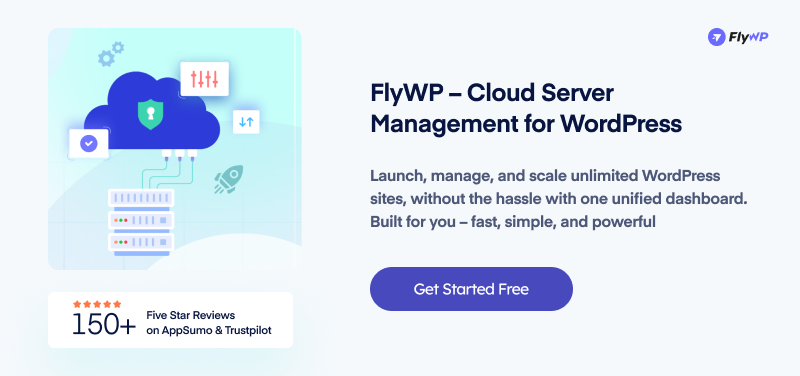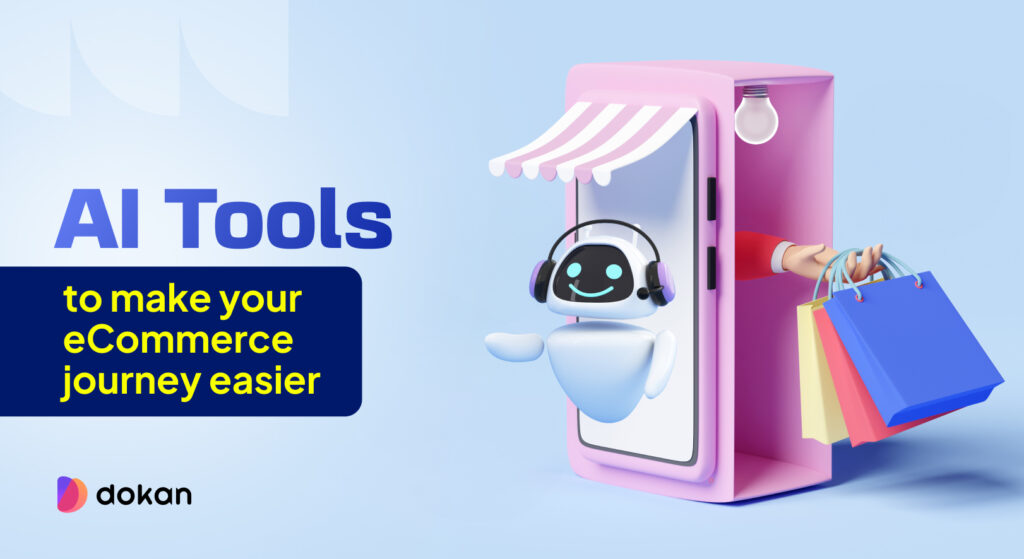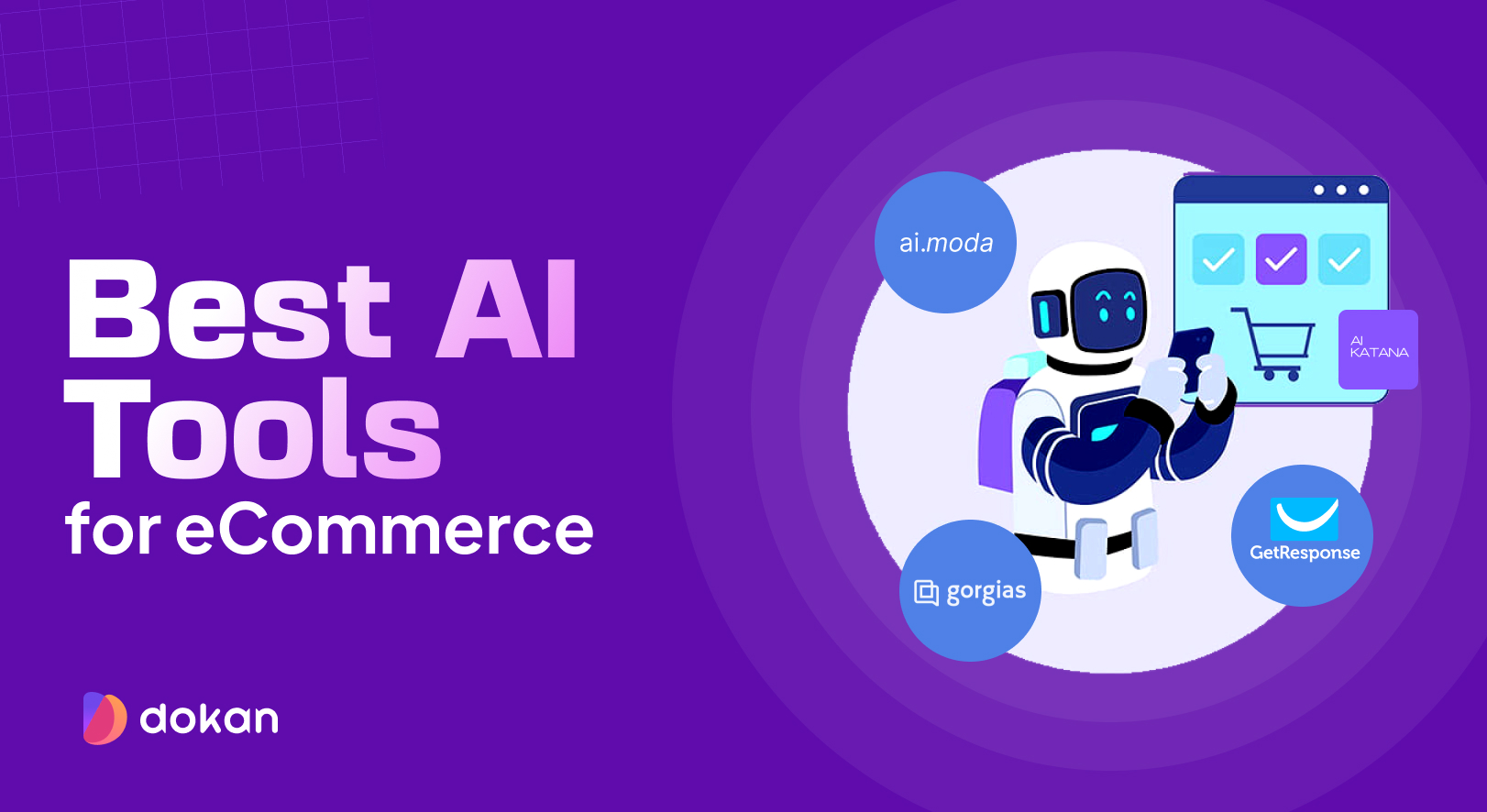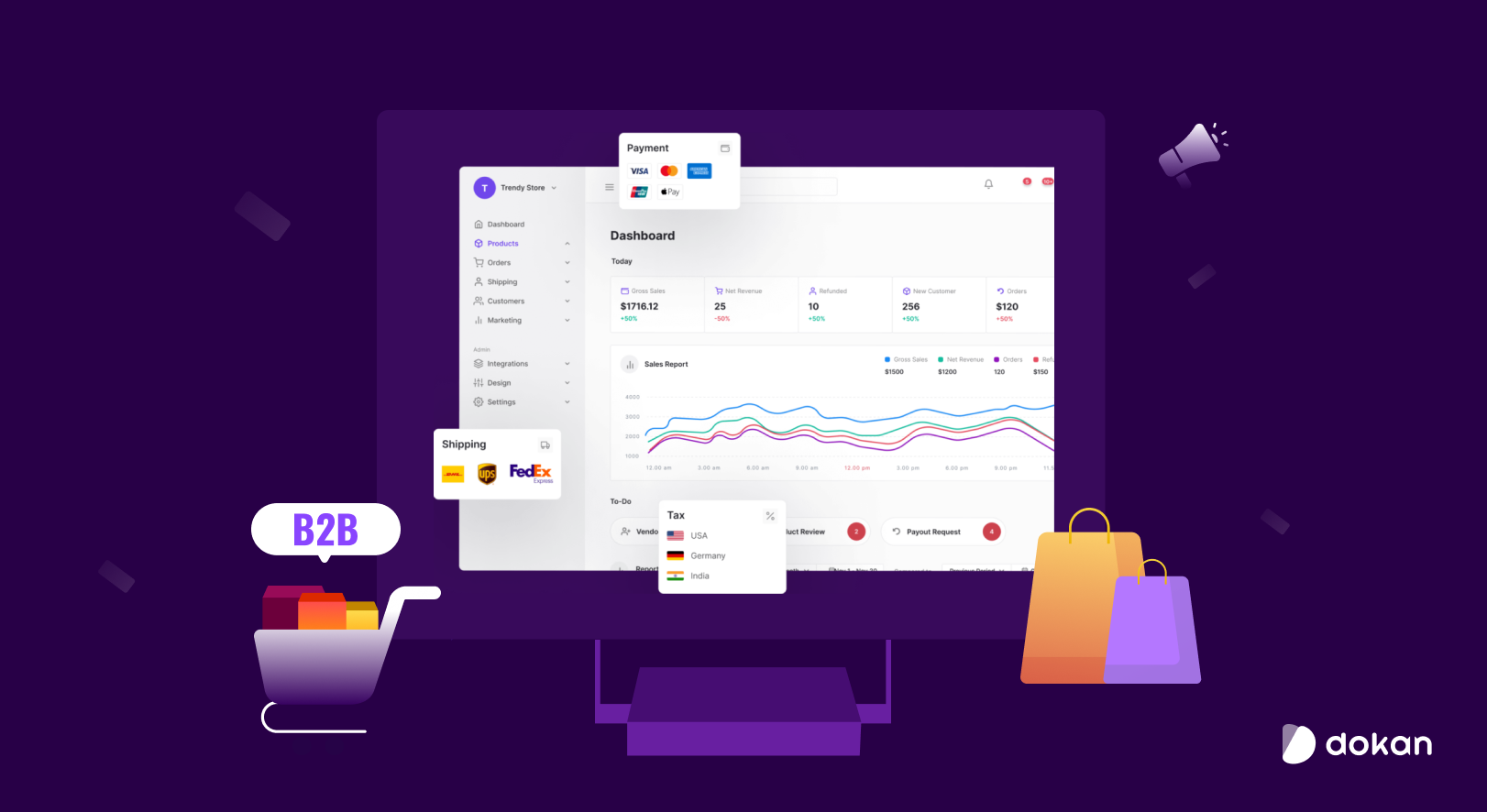As an eCommerce owner, you want to optimize your business operations and enhance the customer experience. Use eCommerce AI tools to automate various tasks, streamline processes, and make data-driven decisions.
AI tools free up valuable time and resources by automating repetitive and time-consuming processes. This lets you and your teams focus on strategic decision-making and high-value tasks.
Since plenty of AI tools are available in the market, getting confused is normal.
To help you out, we’ll list the AI tools you can utilize for your eCommerce business.
How AI Can Help You Grow Your Online Business
Nowadays, AI tools are used everywhere. It’s like having a super-powered helper robot quietly taking over our world—in a good way!
From healthcare to social media, AI tools act as powerful helping assistants. They make our hands more robust and efficient. This newly adopted system increases team productivity and reduces the hassle of many repetitive tasks.
Below are some sectors where you can use AI to make your business more impactful:
- Customer Service: Businesses often need help to respond quickly to their users. AI-powered chatbots can handle common inquiries and provide instant responses around the clock.
- Personalized Marketing: AI algorithms can analyze customer data to deliver personalized recommendations, content, and promotions.
- Marketing and Sales: You can use AI tools to understand customer behavior, segment audiences, and optimize marketing campaigns through data analysis.
- Inventory Management: AI enables businesses to predict demand, optimize stock levels, and automate reordering processes.
- Content Management: AI can also help in content creation. Many handy AI tools allow you to write engaging blogs or create relevant media content for your business.
- SEO Optimization: AI tools help you identify which keywords to target or how to structure content for better visibility.
- Security: AI-powered systems can analyze vast amounts of data to identify patterns and anomalies indicating a security breach or potential danger.
- Decision Making: Many AI tools analyze historical data and current trends to forecast future outcomes. With a glimpse into the future, businesses can make more informed strategic decisions.
As you can see, AI is gradually transforming the eCommerce landscape. If your business is not still using AI tools, it’s time to start exploring the options today!

10+ AI Tools to Make Your eCommerce Journey Easier

Here, we’ve divided the tool suggestions into different groups so you can quickly identify your preferred solution:
- AI Tools to Write Your Product Description
- Image Generation & Edit AI Tools
- AI Customer Service Tools
- eCommerce AI Tools for Personalization
- Product Recommendations AI Tools for eCommerce
AI Tools to Write Your Product Description
Well-written product descriptions can improve a website’s search engine ranking and help customers make informed purchasing decisions.
However, an eCommerce store typically has thousands of products to sell, so it can take time to generate unique and engaging descriptions for each product.
Luckily, AI-powered NLG tools can generate high-quality product descriptions automatically. These tools analyze product data and generate human-like descriptions.
1. Copysmith
Copysmith is an AI-powered copywriting tool that helps users create high-quality content quickly and easily. It uses machine learning algorithms to generate engaging content. Input details about your product and Copysmith will craft compelling descriptions for you.
Key features of Copysmith:
- Generates high-quality content in seconds
- Supports various types of content
- Allows users to customize the tone, style, and length of the generated content
- Provides a plagiarism checker to produce original content
- Integrates with popular platforms like Shopify, WordPress, and Google Ads
2. Writesonic
Writesonic uses artificial intelligence to generate various content formats, such as social media posts, website copy, product descriptions, and even blog articles. It requires multiple steps to set your preferences, so you can get high-quality content that resonates with your target audience.
Key features of Writesonic:
- Provides a user-friendly interface
- Supports multiple languages
- Offers a range of templates and prompts
- Allows users to customize generated content
- Utilizes advanced natural language processing (NLP) algorithms
3. ContentBot
ContentBot is an innovative AI-driven content creation platform designed to generate high-quality content efficiently. It helps you craft product descriptions that capture attention and drive sales. With its intuitive interface, you can quickly generate compelling copy for your products.
Key features of ContentBot:
- Provides a user-friendly interface
- Ensures seamless integration with popular platforms and tools
- Provides multilingual support for users worldwide.
- Gives options to adjust the writing style to match your desired tone
- Offers various writing modes including blog posts, social media content, emails, and more.
Image Generation & Edit AI Tools
Image AI tools for eCommerce use artificial intelligence algorithms to generate or edit images automatically. You can use these tools for various purposes, such as creating realistic images from text descriptions, enhancing the quality of images, or removing unwanted elements from photos.
Some popular Image Generation & Edit AI Tools include:
4. DALL-E 3
DALL-E 3 is an advanced AI model developed by OpenAI. This AI tool can generate realistic images from text descriptions. Just by inserting commands in natural language, you can create visually appealing and unique product images for your online shop.
It can also be used to customize images based on specific requirements. Suppose you want to showcase a product in different colors or sizes. Based on your description, DALL-E 3 can instantly generate different images.
Key Features of DALL-E 3 :
- Creates realistic images from text descriptions
- Generates pictures in a variety of styles.
- Supports a wide range of customizations
- Works with a variety of prompts and questions
5. Gigapixel AI
Gigapixel AI is AI-powered image upscaling software developed by Topaz Labs. It uses advanced algorithms to significantly enhance the resolution and quality of images. This powerful tool can be used to improve the quality of old, low-resolution photos or to create high-quality images from low-resolution scans.
Gigapixel AI uses a process called super-resolution to increase the resolution of images. This technique can improve the quality of your product images and make your online presence more professional and appealing to customers.
Key Features of Gigapixel AI:
- Increases the resolution of images by up to 600%
- Improves the image size without sacrificing sharpness or clarity
- Reduce noise and artifacts in the images
- Capable of processing multiple images simultaneously
6. Pixlr
Pixlr is a free online photo editing tool that offers a wide range of features for editing and enhancing images. Recently, this tool has incorporated artificial intelligence to improve and automate various aspects of the image editing process.
You can access Pixlr through its website or use its mobile app to edit photos on the go. The app offers tools for adjusting colors, adding filters and effects, cropping and resizing images, and much more.
Key Features of Pixlr:
- Offers automated background removal functionality
- Uses AI-powered content-aware fill techniques
- Offers various filters and adjustment tools
- Allows users to edit multiple images simultaneously
- Utilizes AI algorithms to improve the quality of images automatically
AI Customer Service Tools

Excellent customer service can help build customer trust, increase repeat purchases, and generate positive word-of-mouth referrals. In a competitive online marketplace, exceptional customer service can be a crucial differentiator for businesses looking to stand out and succeed.
Some popular AI customer service tools include chatbots, virtual assistants, and automated email responders to ease the customer service process. These tools can be integrated into websites, social media platforms, and messaging apps to provide round-the-clock support to customers.
7. LivePerson
LivePerson is a leading provider of conversational commerce solutions. It enables businesses to connect with their customers through messaging and AI-powered chatbots. This tool uses AI to provide 24/7 customer support. It can answer customer questions, resolve issues, and even upsell products.
LivePerson allows businesses to engage with customers across various messaging channels, including SMS, Facebook Messenger, WhatsApp, Apple Business Chat, and more.
Key Features of LivePerson:
- Incorporates AI-powered chatbots
- Ensures seamless omnichannel experience
- Leverages data and machine learning algorithms
- Provides businesses with analytics and reporting tools
- Integrates with popular CRM systems
- Ensures the security and privacy of customer data
8. Help Scout AI
Help Scout AI is an advanced customer service platform. This tool utilizes AI algorithms to analyze and categorize incoming support tickets. Then, automatically assign them to the most appropriate team or agent based on topics, urgency, and skillset.
Help Scout continuously learn from historical data and user feedback to improve its algorithms and recommendations.
Key Features of Help Scout AI:
- Helps agents quickly craft personalized and effective replies
- Incorporates sentiment analysis capabilities
- Enables businesses to automate repetitive tasks
- Provides comprehensive analytics and reporting tools
- Integrates seamlessly with other business tools and systems
9. Jasper.ai
Jasper AI is an innovative customer service platform that utilizes machine learning techniques to personalize responses based on customer preferences, past interactions, and historical data. It can also be used to create chatbots that can answer common questions.
This Conversational AI tool provides detailed analytics and reporting tools that offer insights into customer interactions, agent performance, and overall customer satisfaction. So, businesses can track performance and identify areas for improvement.
Key Features of Jasper.ai:
- Employs natural language processing (NLP) algorithms
- Offers support across multiple channels
- Incorporates sentiment analysis capabilities
- Integrates with existing knowledge bases and FAQs
- Learns from past interactions and user feedback
AI Personalization Tools

By personalizing the shopping experience, businesses can increase customer engagement & loyalty and drive sales. According to a study by Epsilon, 80% of consumers are more likely to purchase when brands offer personalized experiences.
Use these AI tools to ensure a better customer experience:
10. Dynamic Yield
Dynamic Yield is a comprehensive AI-powered personalization platform for eCommerce. It offers many features to optimize customer experiences and drive conversions. Dynamic Yield uses machine learning algorithms to analyze real-time customer behavior and preferences. So, businesses can customize their content, recommendations, and offers for each user.
Key Features of Dynamic Yield
- Helps to identify the most effective strategies for driving conversions.
- Utilizes machine learning algorithms to forecast customer behavior
- Uses AI to help you find the right products for your customers.
- Provides personalized recommendations and messaging across multiple channels
- Enables businesses to experiment with different variations of content & layouts
11. CleverTap
CleverTap is a customer engagement and retention platform. It helps businesses analyze user behavior and engage with customers through personalized messaging and targeted campaigns. You’ll get features like user segmentation, real-time analytics, A/B testing, and push notifications.
Key Features of CleverTap
- Creates dynamic user segments based on different criteria
- Reaches customers across multiple channels
- Tracks user behavior in real-time to understand how users interact
- Allows to set up automated campaigns based on triggers
- Tracks real-time user behavior to optimize engagement strategies.
12. LiftIgniter
LiftIgniter helps eCommerce businesses deliver relevant and engaging experiences to their customers. It uses real-time data to recommend the right content or products to visitors. This fantastic tool automatically adjusts website content and layout based on individual user preferences and engagement patterns to maximize relevance and engagement.
Key Features of LiftIgniter:
- Adapts to changes in user behavior and preferences
- Integrates seamlessly with existing content management systems
- Provides detailed analytics and reporting tools
- Offers support for various channels including websites, mobile apps, and email
- Analyzes user data to improve recommendation accuracy and relevance over time
Product Recommendations
McKinsey found that personalized product recommendations can increase conversion rates by up to 300%.
By using AI tools, you can offer relevant product recommendations based on a customer’s browsing and purchase history. This not only boosts sales but also helps build customer trust and loyalty.
13. Google Cloud AI Recommendations
Google Cloud AI Recommendations is a machine learning service provided by Google Cloud Platform. It helps businesses build personalized product recommendation systems. This tool uses AI to recommend products to customers based on their past purchase history, browsing behavior, and other factors.
Key Features of AI Recommendations:
- Generates personalized recommendations for products
- Ensures the security and privacy of user data
- Seamlessly integrates with other Google Cloud services
- Allows businesses to customize recommendation algorithms
- Handles large volumes of data and delivers high-performance recommendations
14. Personyze
Personyze analyzes users’ data to provide personalized product recommendations. It offers a variety of recommendation algorithms, including collaborative filtering, content-based filtering, and hybrid models. Businesses can use these approaches to increase sales and engagement on their websites.
Key Features of Personyze:
- Analyzes user behavior, preferences, and demographics
- Segments users based on their browsing history and purchase behavior
- Conducts A/B tests to compare different content variations
- Provides customer support and training resources
- Helps businesses track performance and identify opportunities for improvement
15. Involve.me
Involve.me allows businesses to create interactive content like quizzes, surveys, and forms. Based on their responses, you can recommend specific products that align with their preferences. For example, if a user indicates they prefer certain features or styles, you can dynamically display product recommendations that match their preferences.
Key Features of Involve.me:
- Creates personalized interactive content
- Automates the creation and delivery of interactive content
- Integrates with popular marketing tools and platforms
- Helps businesses better understand their audience and improve marketing strategies
- Analyzes user responses and behavior to provide valuable data and insights
There are several sections of an online business you need to manage. These tools can minimize your hassle significantly and give you a better way to increase productivity.
Bonus: Common Challenges to Use eCommerce AI tools
While AI tools offer numerous benefits, businesses can encounter several challenges when implementing and using them:
- Data Quality and Quantity: AI tools require large amounts of high-quality data to function effectively. Gathering relevant data can be daunting.
- Integration Complexity: Integrating AI tools into existing eCommerce platforms or systems can be complex and time-consuming.
- Costs: Implementing and maintaining AI tools in eCommerce can be expensive. Businesses must consider the costs of acquiring AI technology, training data, infrastructure, and ongoing maintenance.
- User Privacy and Data Security: AI tools often require access to large amounts of user data to provide personalized experiences. Failure to adequately protect user data can lead to legal consequences and loss of customer trust.
- Scalability and Flexibility: As eCommerce businesses grow, their AI systems must scale accordingly to handle increasing data volumes and user interactions.
- Ethical and Social Implications: AI-powered eCommerce tools raise ethical concerns about algorithmic bias, discrimination, and manipulation. Businesses must proactively address these moral and social implications to build trust and maintain a positive brand reputation.
- User Adoption and Acceptance: Convincing users of the benefits of AI-driven personalization and recommendations while respecting their privacy concerns and preferences is a significant challenge.
Successfully navigating these challenges requires strategic planning, adaptability, continuous learning, and a customer-centric approach. Therefore, you can quickly build a successful online business.

Optimize Your Online Store with eCommerce AI Tools
Running a profitable online store is becoming more challenging every day. You must coordinate various business processes, from inventory management to smooth delivery systems.
Moreover, customer behavior is continuously changing. It takes time to stay updated on the latest trends and technologies and actively listen to customer feedback.
To simplify these activities, you can take help from AI tools.
eCommerce AI tools can significantly enhance online businesses’ efficiency, productivity, and customer experience.
Above, you’ll find popular eCommerce AI tools to manage different online business activities.
If you need further help to implement AI tools for eCommerce, do comment below. Also, you can suggest some helpful AI tools you’ve used personally.
Subscribe to
Dokan blog
We send weekly newsletters, no spam for sure!







Leave a Reply